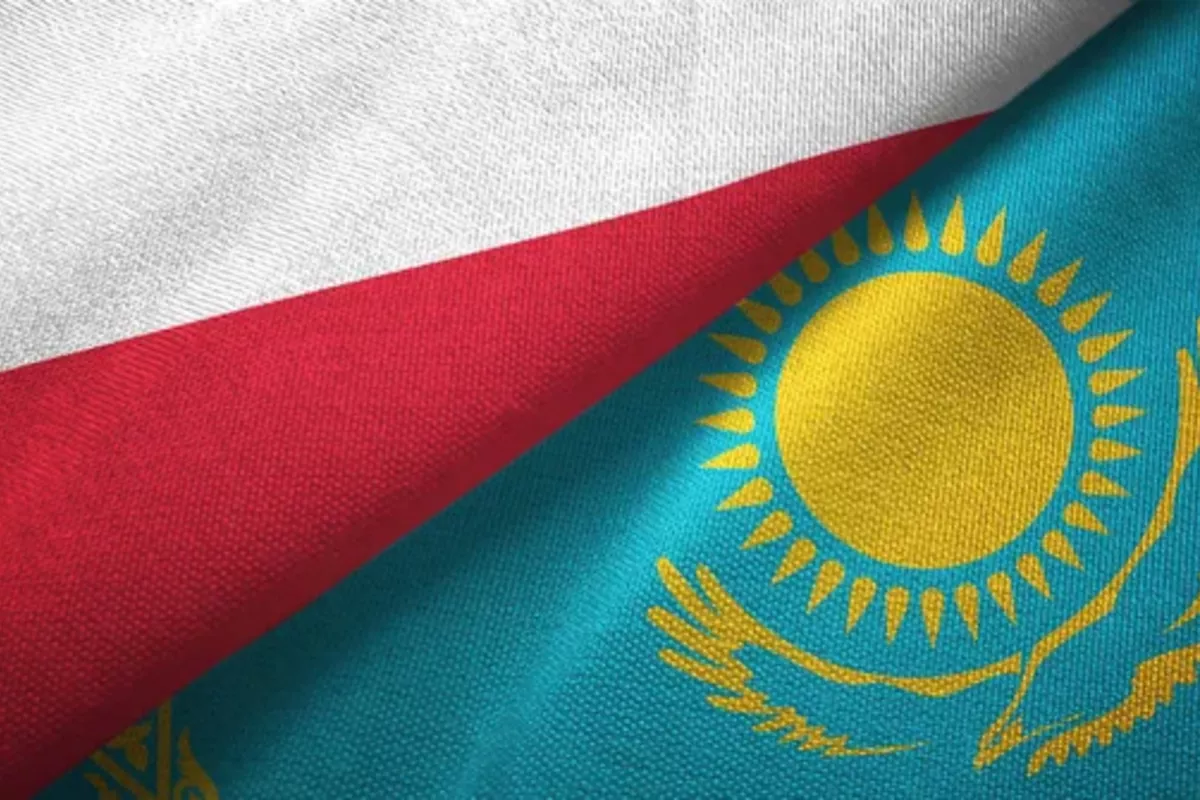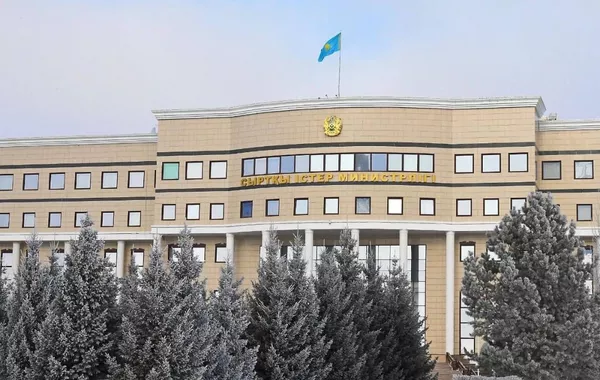
Photo credit: Depositphotos
Poland has consistently been one of Kazakhstan’s key partners within the European Union, currently ranking as its eighth-largest trading partner.
The bilateral relationship is strengthening further with growing cooperation in mining engineering, pharmaceuticals, information technology, and financial technology, reflecting a deepening economic and strategic partnership, The Caspian Post reports citing The Astana Times.
Michał Labenda, the chargé d’affaires of the Polish Embassy in Kazakhstan, has a uniquely personal connection to the country. Fluent in Kazakh, he first arrived in the 90s and graduated from Al-Farabi Kazakh National University with a degree in Oriental studies. Nearly three decades later, in 2024, he returned to Astana as Poland’s top diplomat.
In an interview with The Astana Times, Labenda reflected on three decades of diplomatic and economic ties, Kazakhstan’s evolving role as a middle power and Poland’s own recent leadership in the EU.
Dynamic and consistently positive relations
Labenda described the past 30 years of bilateral cooperation as “highly dynamic and consistently positive,” highlighting the steady growth of mutual trust and shared goals.
“Among the most important milestones, I would highlight the establishment of our diplomatic missions, numerous high-level visits, including presidential visits, that provided crucial political impetus, and the consistent growth of our economic and cultural ties. I am very happy about our very close cooperation between Poland and Kazakhstan not only bilaterally, but also in international fora, where we often support each other’s initiatives,” he said.
He emphasized that this partnership rests on a foundation of respect for international law, territorial integrity, human rights and the rule of law.
Expanding economic ties
Poland is now one of Kazakhstan’s leading partners in Central and Eastern Europe. Kazakh-Polish trade makes up more than 80% of Poland’s total trade with Central Asia. In 2024, trade turnover reached $1.12 billion, with $488 million in exports and $639 million in imports. In the first two months of 2025, turnover totaled $169.2 million. Since 2005, Polish foreign direct investment in Kazakhstan has reached $522 million.
Labenda said Kazakhstan’s exports to Poland are still dominated by raw materials, primarily oil, gas and metals. Poland, in turn, exports machinery, chemicals, high-quality agricultural goods and food products.
“Today, the structure of trade turnover is dominated by raw materials. Our goal is to diversify this structure and increase the share of goods and services with high added value, moving beyond traditional commodities,” he said.
More than 140 companies with Polish capital are now operating in Kazakhstan, ranging from small regional firms to global enterprises. These include Polpharma in pharmaceuticals, Selena, known for construction chemicals, and Stockson, a confectionery producer. A Seneka Poland fish feed production plant will soon open in Kazakhstan, while a $120 million greenhouse project in Shymkent is set to launch as a joint Kazakh-Polish initiative.
“Polish companies are active in various sectors of the Kazakh economy, including energy, agriculture, construction, and logistics. One of the most important areas is pharmaceutics and chemical products, where the cooperation is developing with great speed and enjoys political support on the highest level,” said Labenda.
High-tech cooperation and education
Labenda noted a new shift toward high technologies and innovation. Polish IT companies are finding opportunities in software development, cybersecurity and fintech.
“This reflects a broader trend of our economic cooperation evolving to meet the demands of the digital age,” he said.
Cybersecurity, in particular, is a field where Poland has emerged as a leader. The country ranked first in the 2024 National Cyber Security Index, a recognition of its government investment and public-private partnerships.
“I believe our experience can be immensely useful for Kazakhstan in developing its digital security. We are ready for closer cooperation, whether through joint training programs, strengthening critical infrastructure or developing national cybersecurity strategies. This partnership is crucial for ensuring the safety and stability of our increasingly digital economies,” he said.
Education is another key area of cooperation. Poland has become a popular destination for Kazakh students, with more than 3,000 currently enrolled. Over 20 Polish-language teachers also work in Kazakhstan’s schools and universities.
Scholarships such as the Stefan Banach program for physics and mathematics students and the Lane Kirkland program for political sciences attract Kazakh students to study in Poland. Winter schools and agricultural internships also provide opportunities for young Kazakhs to gain international experience.
Reform and regional role
Labenda praised Kazakhstan’s ongoing political and economic reforms, calling the leadership’s commitment to building a new Kazakhstan commendable.
“These changes will contribute significantly to creating a stable and predictable investment climate. Such an environment is essential for attracting foreign direct investment and fostering long-term growth, which ultimately benefits both our countries,” he said.
He also noted the country’s geopolitical role.
“Kazakhstan’s role as a middle power is well-established. In Poland, we understand what comes with this status. We are also a regional power in Central Europe. A regional power participates actively in multilateral fora, promotes connectivity and dialogue, and serves as a bridge between regions. For Poland, it is between Eastern and Western Europe. For Kazakhstan, it is between China and Europe,” said Labenda.
According to him, high-level visits and joint economic forums remain a priority on the bilateral agenda, as they create direct opportunities for business communities to connect, form new partnerships and explore investment projects.
“We are confident that these future meetings will elevate our relationship to a new level. Kazakh Minister Murat Nurtleu has issued an official invitation to Polish Foreign Minister Radosław Sikorski to visit Astana, and I hope this visit will happen soon,” said Labenda.
Poland’s EU presidency
On Jan. 1, Poland assumed the presidency of the EU Council, holding the position through June 30. The presidency’s agenda emphasized strengthening European security across seven dimensions: external, internal, information, economic, energy, food and health.
“We worked to strengthen European unity and resilience in the face of ongoing geopolitical challenges, especially regarding support for Ukraine. We also prioritized competitiveness and technological sovereignty for the EU. In foreign policy, our goal was to reinforce the EU’s role as a strong, credible partner on the international stage, particularly with neighbors and key partners like Kazakhstan,” said Labenda.
Denmark assumed the presidency in July, but Labenda said Poland can be “proud of its performance” during its term.
Share on social media
